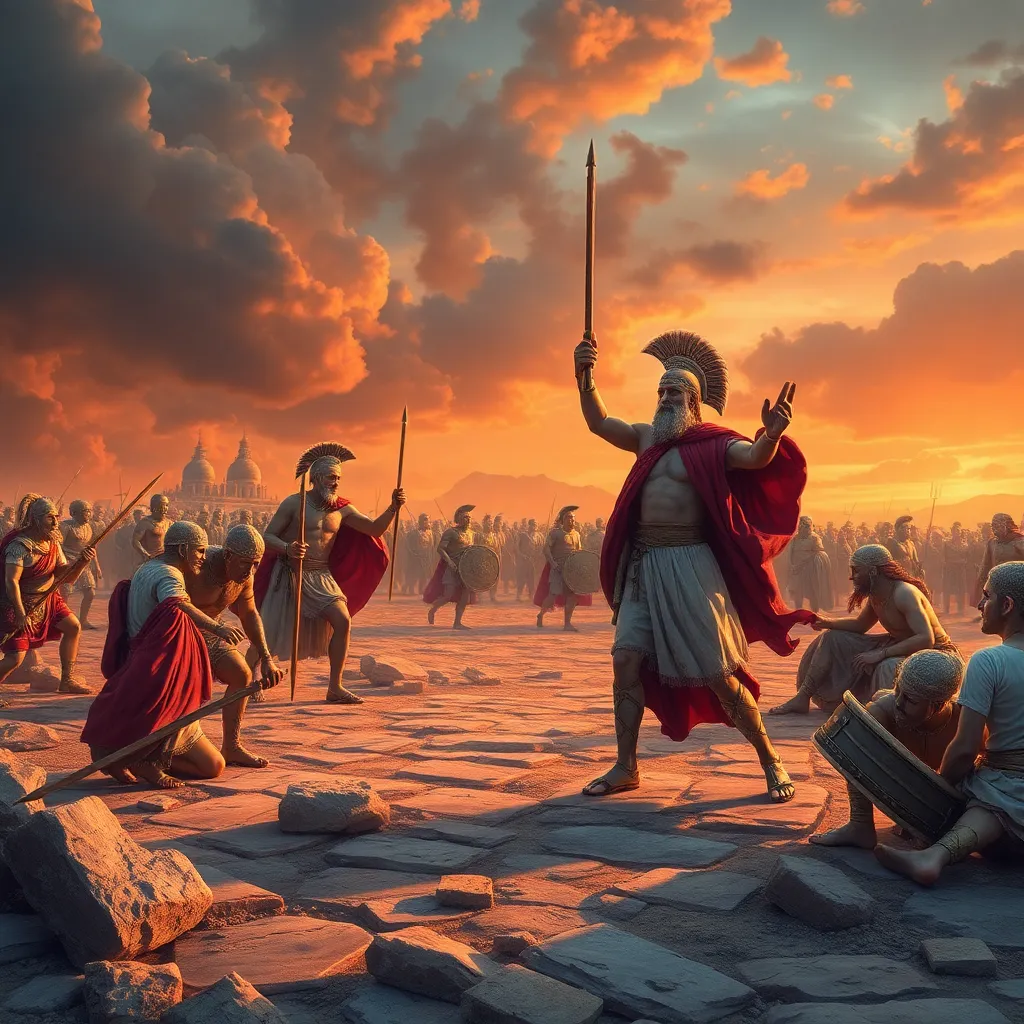The Trojan War: Analyzing the Role of the Narrator in Ancient Texts
I. Introduction
The Trojan War, a monumental conflict in ancient Greek mythology, has captivated audiences for centuries. It serves not only as a backdrop for tales of heroism and tragedy but also as a rich wellspring of literary analysis. The significance of the war extends beyond its mythological events; it is pivotal in the evolution of narrative techniques in ancient literature.
The role of the narrator in these texts is crucial, as their perspective shapes how the story is told and understood. This article aims to explore the various narratorial perspectives found in ancient texts, highlighting how they influence interpretations of the Trojan War.
II. Historical Context of the Trojan War
The Trojan War, said to have taken place in the late Bronze Age, is a blend of myth and history. According to legend, it began when Paris of Troy abducted Helen, the wife of Menelaus, which led to a coalition of Greek states waging war against the city of Troy.
Key ancient texts that chronicle these events include:
- Homer’s Iliad
- Homer’s Odyssey
- Virgil’s Aeneid
- Ovid’s Metamorphoses
These works not only recount the events of the war but also reflect the cultural and historical backdrop of their times, revealing insights into the values and beliefs of ancient civilizations.
III. The Role of the First-Person Narrator
First-person accounts in ancient texts provide a unique lens through which events are viewed. This perspective often conveys emotional depth and personal stakes, making the narrative more relatable.
First-person narration impacts the interpretation of events in several ways:
- It offers an intimate glimpse into the narrator’s thoughts and feelings.
- It can introduce bias, as the narrator’s perspective may distort the truth.
- It allows for a personal connection to the audience, drawing them into the narrative.
In the Iliad, for instance, Achilles often reflects on his emotions regarding honor and glory, providing insight into the motivations behind his actions.
IV. The Third-Person Omniscient Narrator
The third-person omniscient narrator possesses a god-like perspective, allowing for a broader understanding of the events surrounding the Trojan War. This narrative style can convey multiple viewpoints, enriching the story’s complexity.
Characteristics of this perspective include:
- Insight into the thoughts and feelings of various characters.
- Knowledge of events occurring simultaneously in different locations.
- The ability to foreshadow events and provide commentary.
Virgil’s Aeneid exemplifies this technique, as it not only recounts the aftermath of the Trojan War but also follows Aeneas’s journey with a comprehensive understanding of both divine and human actions.
V. The Influence of the Divine Narrator
In many ancient texts, the gods play a significant role as narrators, influencing events and characters. This divine perspective adds layers of complexity to the narrative, as gods often have their own agendas.
The impact of divine intervention includes:
- Shaping the destinies of human characters.
- Creating conflicts that drive the narrative forward.
- Offering moral commentary on human actions.
For example, in the Iliad, the gods frequently intervene in battles, highlighting the theme of fate versus free will. The divine commentary serves to amplify the stakes of human conflict.
VI. The Unreliable Narrator in Ancient Texts
The concept of the unreliable narrator introduces ambiguity and complexity to the narrative. Characters whose perspectives may distort the truth challenge the audience’s understanding of events.
Examples of unreliable narrators include:
- Achilles in the Iliad, whose rage may overshadow the truth of the war.
- Odysseus in the Odyssey, whose cleverness sometimes veils his true intentions.
This unreliability forces the audience to question the veracity of the narrative, encouraging a deeper engagement with the text.
VII. Comparative Analysis of Narratorial Techniques
By comparing narratorial styles across different ancient texts, we can discern how cultural influences shaped storytelling. For instance:
- Homer’s use of direct speech contrasts with Virgil’s more elaborate descriptions.
- The Greek focus on individual heroism differs from the Roman emphasis on duty and destiny.
This evolution of narrative techniques illustrates a shift in how stories were told, reflecting broader societal changes from the era of the Trojan War to later literature.
VIII. Conclusion
In summary, the role of the narrator in ancient texts surrounding the Trojan War is multifaceted and profound. Through various perspectives—first-person, third-person omniscient, divine, and unreliable—we gain a richer understanding of the war’s complexities and its characters.
The choices made by narrators not only shape the story but also influence how audiences interpret the events of the Trojan War. These ancient narratives continue to resonate, offering valuable lessons and insights for contemporary storytelling.
As we explore these ancient texts, we uncover the timeless nature of human experience, reminding us that the art of storytelling remains a vital part of our cultural heritage.




